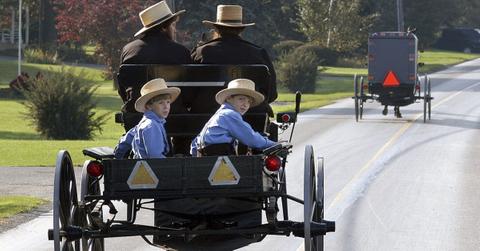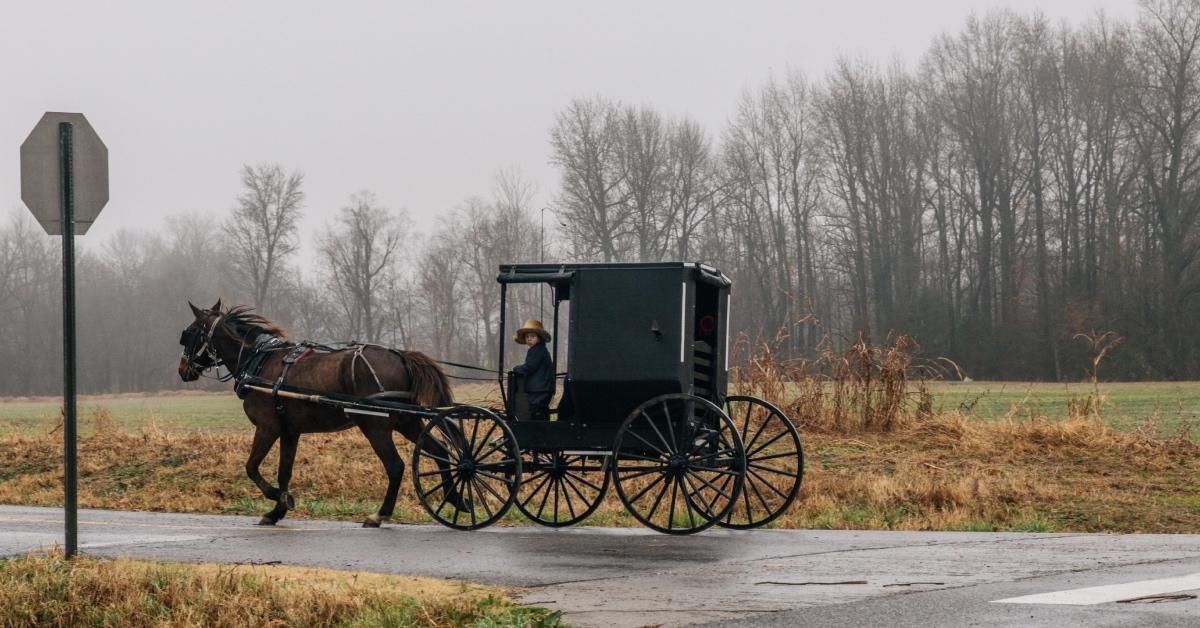Amish and Mennonite Communities Pay Certain Taxes but are Exempt From Others
Both the Amish and Mennonite communities pay their taxes just like every U.S. citizen. Here's all the info to debunk any tax myths.
March 2 2023, Updated 3:20 p.m. ET

If you think that the Amish and Mennonite communities get a free ride when it comes to paying taxes, think again. That’s a myth.
Both religious communities pay their taxes just like every U.S. citizen. They pay income tax as well as property taxes, even though they don’t benefit from the part of property taxes that funds public schools. Most Amish children go to private Amish schoolhouses.
The only taxes the Amish get a break on are Social Security taxes and worker’s compensation. Here's a breakdown of the tax exemptions most Amish enjoy as well as how they are taxed on income.
Why are the Amish exempt from Social Security taxes?

The exemption from Social Security tax for Amish and Mennonites started back in 1965. Until that time, the government was having a hard time collecting taxes from religious communities.
The Amish wouldn’t pay the tax because it's basically against their religion. For that matter, so are any social programs including welfare and unemployment.
Instead of relying on government assistance programs, the Amish prefer to use their tight-knit communities to care for their elderly and sick and injured members.
"We have our own health care. They (hospitals) give you a bill. If you can't pay it, your church will," one retired Amish member told NBC in a 2013 article.
So, Congress amended the Social Security law in 1965 to give certain religious communities like the Amish and the Mennonites the right to opt-out of Social Security, Medicaid, and other government benefits.
When the Affordable Care Act was adopted in 2010, the Amish and Mennonites also got an exemption from the requirements of that act because insurance is against their religious beliefs.
Since the Amish are exempt from paying Social Security taxes, they give up their right to receive any benefits from the program. Therefore, come retirement, those belonging to an Amish community won't be eligible to claim Social Security benefits.

Do Amish business owners have to pay Social Security taxes?
If an Amish business owner employs non-Amish workers, they have to pay Social Security taxes for those employees. This is also true if they employ Amish youths who haven’t been baptized in the church yet.
Some states like New York, Kentucky, Ohio, and Pennsylvania also exempt Amish business owners from worker’s compensation insurance programs.
Most U.S. employers are required to purchase workers’ compensation insurance to provide care for workers in the case of a workplace injury or illness.
Instead, Amish business owners pay into church-held funds that provide aid to employees if they get sick or injured while on the job.
Some in the construction industry have complained that this gives Amish companies an unfair advantage. Since they don’t have to pay into workers’ compensation, they can offer lower bids on projects.

How do the Amish claim tax exemptions?
Not anyone can just claim that they’re Amish to receive the exemptions. To obtain the exemption, you must be self-employed and a member of a recognized religious sect. Also, you must waive all rights to receive Social Security benefits in retirement.
After you join the Old Order Amish church, you have to file the Social Security Tax Exemption Form 4029 – Application for Exemption from Social Security and Medicare Taxes and Waiver of Benefits with the IRS.
Where do most Amish live?

According to a 2022 Elizabethtown College study, the majority of Amish people reside in Pennsylvania, Ohio, and Indiana. It's estimated that roughly 43,010 Amish live within the Lancaster County, Penn. area alone. Another area with a high Amish population is the Holmes County area in Ohio.
